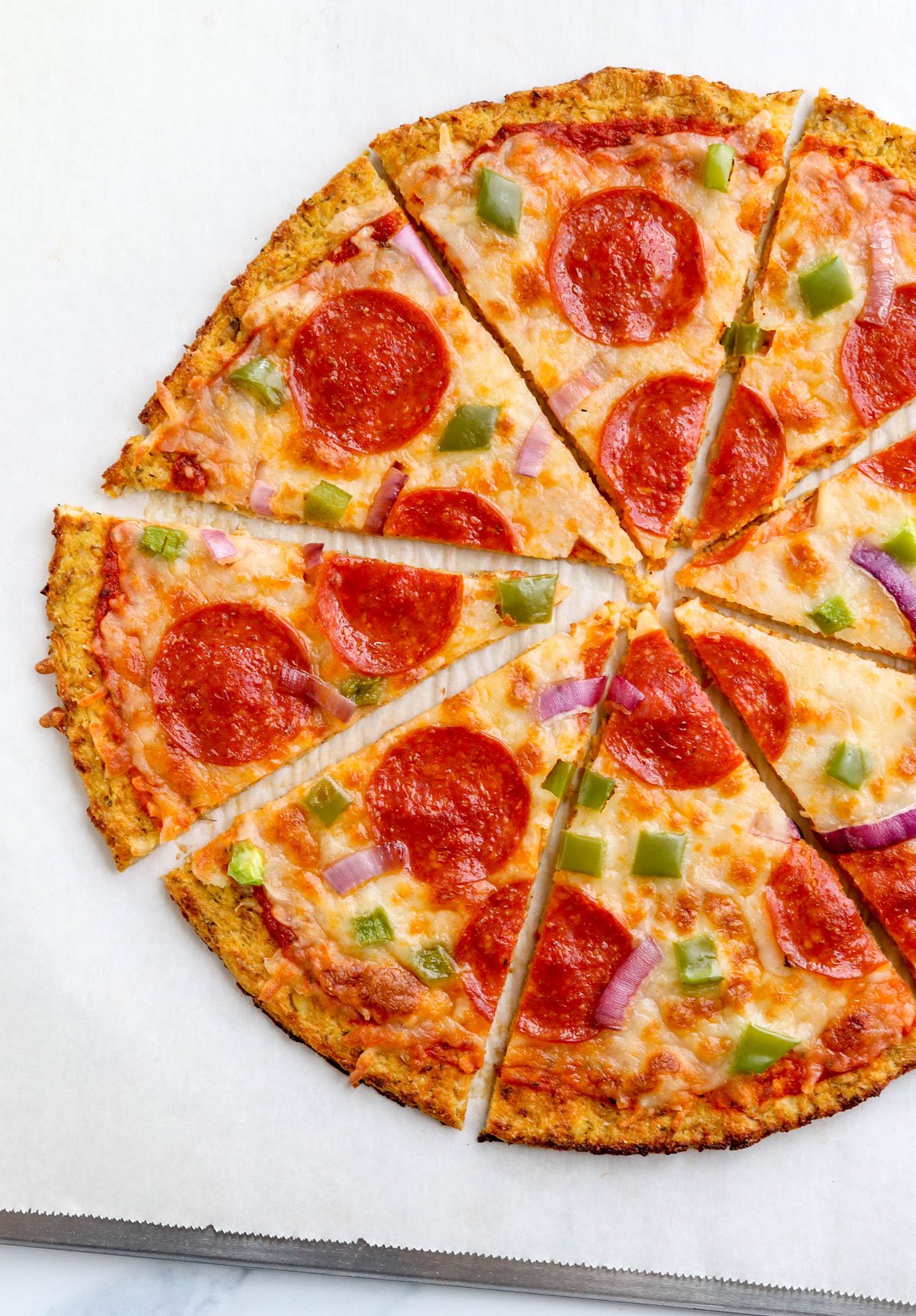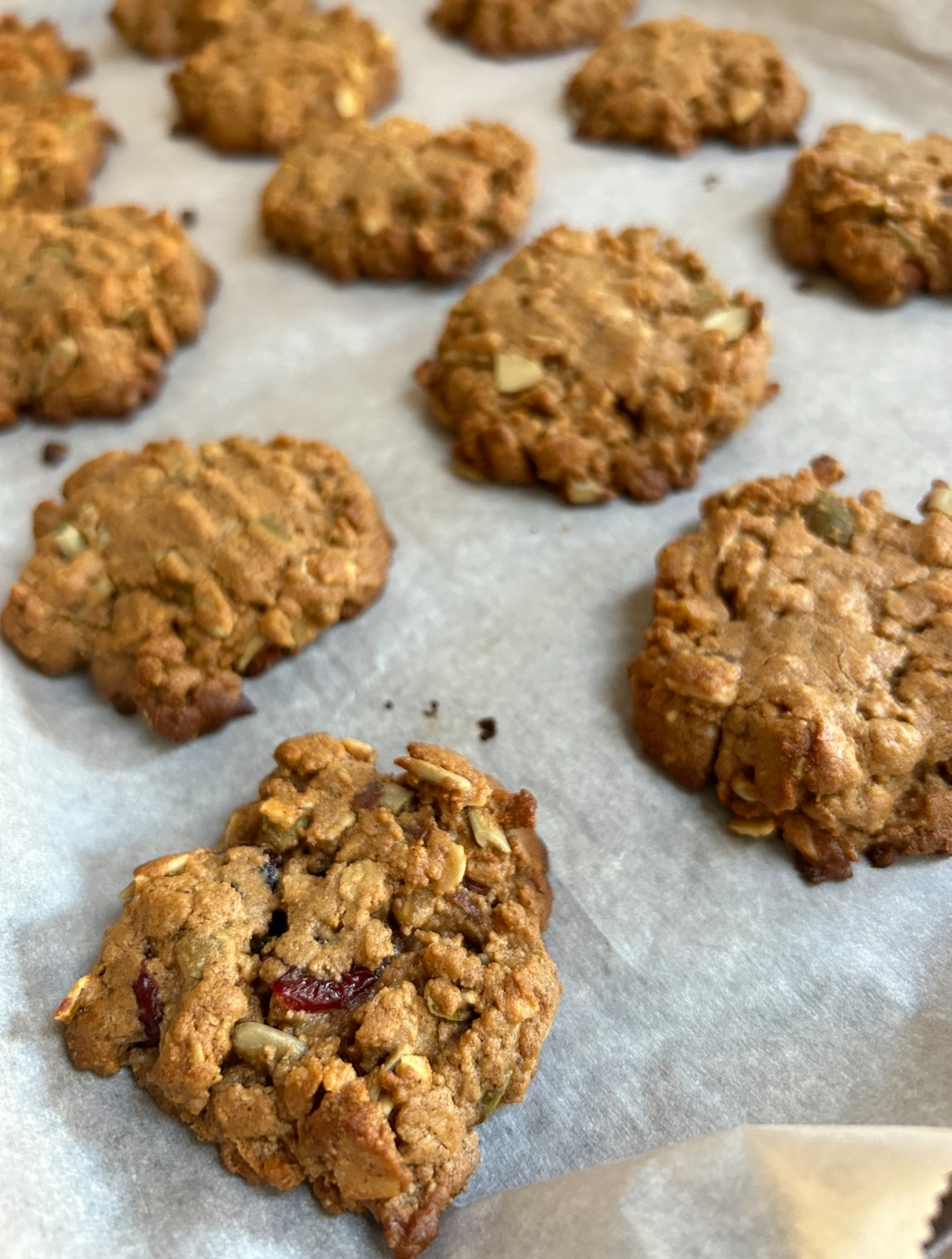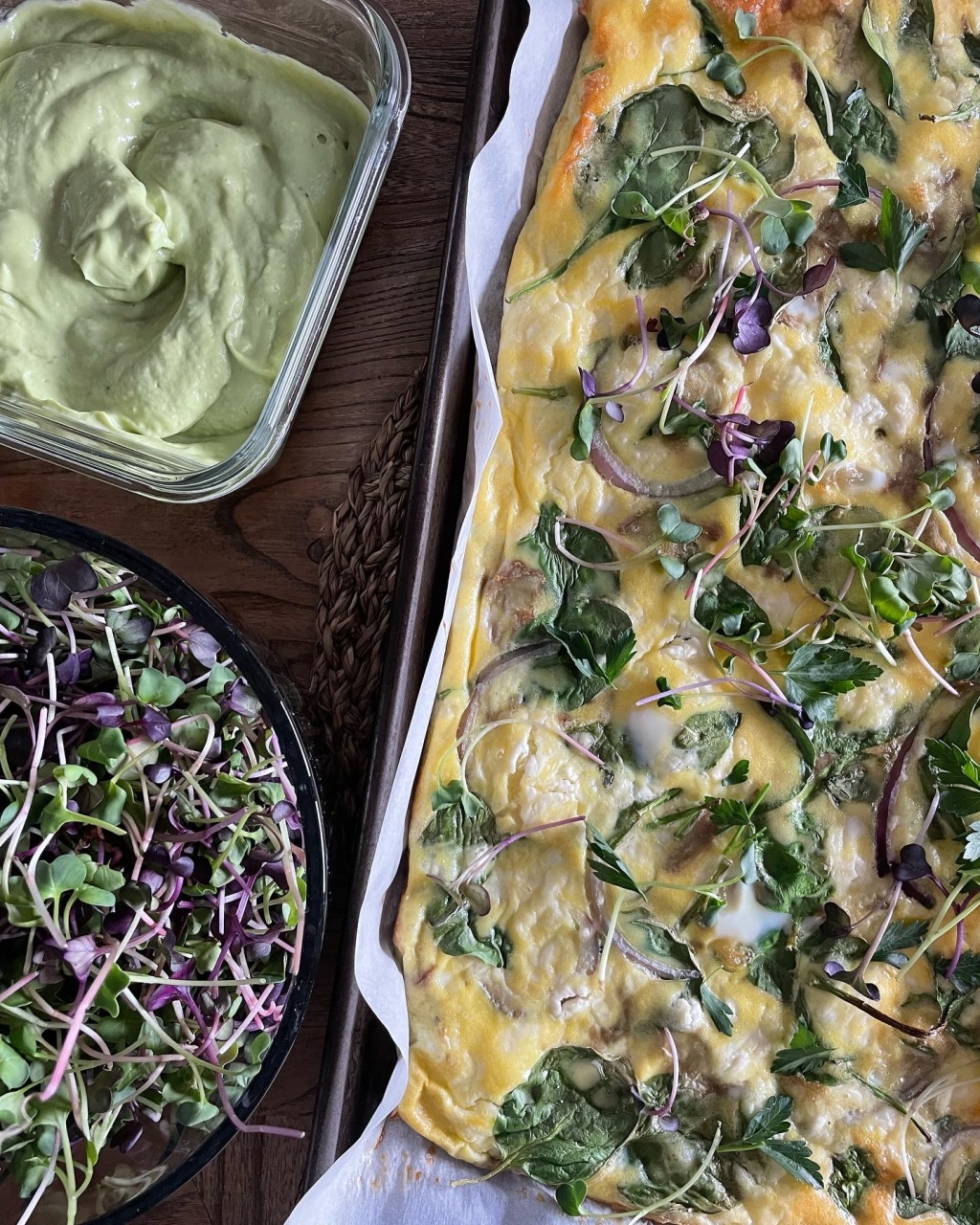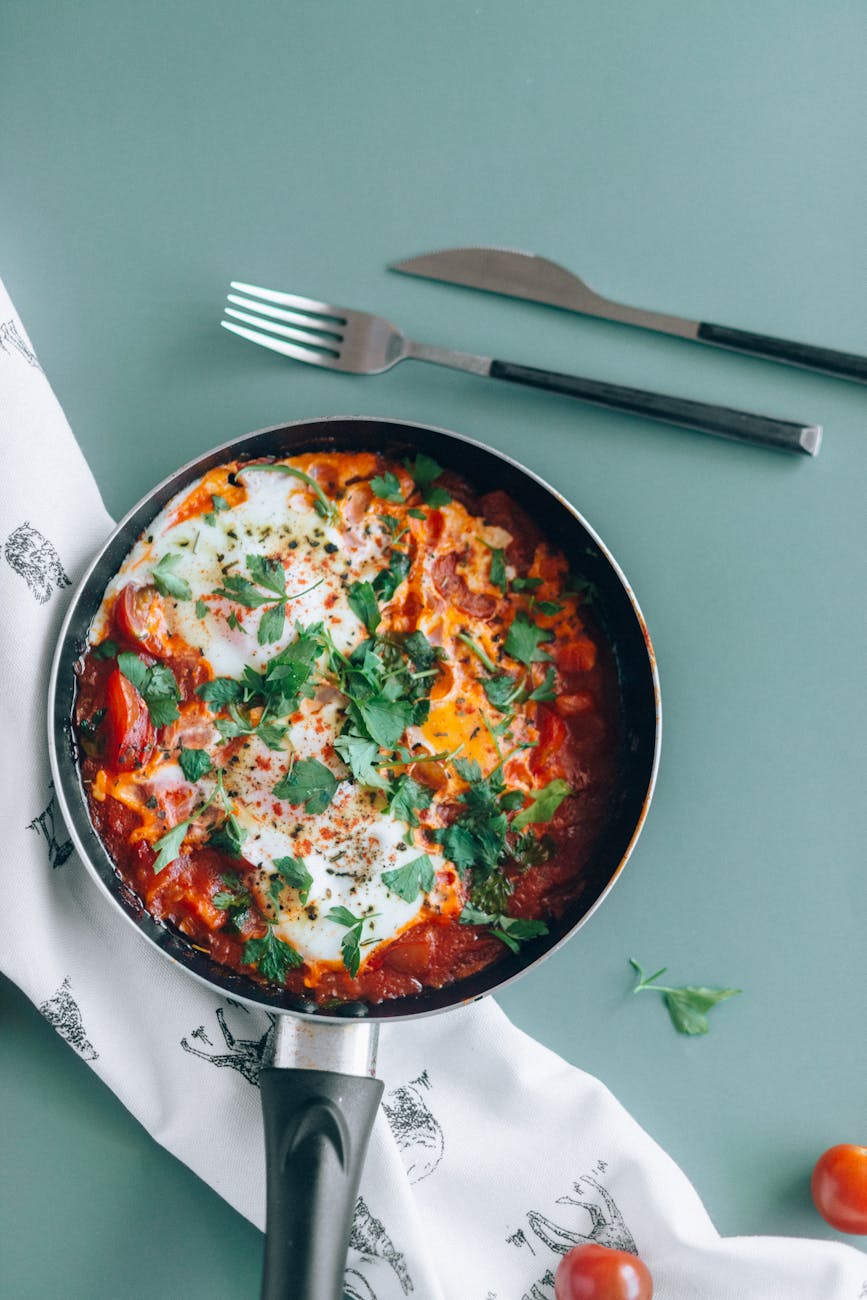For many, grains can be really difficult to digest. After all, grains have only been a part of our diet for 10, 000 years, which is not that long when you look at the big picture.
(This post may contain affiliate links)
As a Holistic Nutritionist, I see many clients who have IBS (irritable bowel syndrome), skin issues, chronic inflammation, auto-immune diseases and more. After reviewing their diet diary, I usually suggest they try ditching the grains, particularly those that are refined or contain gluten.
How Do You Know If Grains Are Your Issue?
A grain-free diet has it’s pros and cons. Not everyone needs to ditch the grains, and not everyone wants to! After all, all the yummy muffins, bagels, pasta dishes and breads are all grain-based, so some might feel like they’re missing out if they choose to go grain-free. But, are they?

Certain symptoms, conditions, diseases and chronic inflammation are linked to regular grain consumption. skin issues, Arthritis, auto-immune disease, IBS, celiac disease, Crohn’s, diverticulitis, insulin resistance, diabetes, acne/problem skin, leaky gut syndrome, carb cravings, joint pain, nutrient deficiencies, headaches, brain fog, gluten intolerance and a variance in the gene responsible for gluten tolerance are all associated with grain consumption, particularly wheat and gluten-containing products. (1) A diagnosed allergy to wheat, called Celiac disease, is associated with intestinal distress, leading to painful symptoms. (2) Grains account for 40-60% of food allergies and many have reported
almost a full recovery of symptoms after the elimination of grains. (3) An estimated 18 million Americans have a sensitivity to gluten.
What, When & How Are Grains A Problem?
Grains today are over-processed and are not of the same quality as they were when they were introduced to our ancestor’s diet 10,000 years ago. Not to mention, the foods that are made of grains also contain other additives that can irritate our digestion. The crops are often grown in soil that is highly sprayed with pesticides and is low in nutrients. This
destroys the plant and also our ability to digest it.

Wheat products, rye and barley, contain gluten, a family of proteins that act like glue to hold a product together, and give it elasticity. Gluten is one of the most difficult proteins to digest. Wheat is found in some products like:
Cosmetics (emulsifiers, surfactants, emollients)
Medications
Additives and binders in food
Wheat-based sugars
Some supplements
Food colouring
Beer
Flour-based pasta
Baked goods
Salad dressings, soups, packaged and processed foods, thick gravies and sauces
As far as digestion of wheat products go, they contain short chain carbohydrates that can ferment in the gut and are difficult to digest. The various proteins in some of these grains can initiate intestinal permeability, or “leaky gut”, which allows the proteins to escape from
the small intestine and enter the bloodstream. The body then starts to attack the circulating proteins, which leads to autoimmune disease and possibly an allergic response over time.
That is not to say that everyone should avoid wheat products, but, if you are experiencing symptoms after consuming wheat and gluten products, you might want to consider the elimination of grains to heal the gut.
Another reason to eliminate grains from your diet is the fact that they contain anti-nutrients which are just as they sound…they affect digestive enzymes and block nutrients. Iron, zinc, copper, B1, and magnesium are common nutrients that are blocked by the phytates in grains. This explains symptoms like acne (zinc related), low energy (iron related), and leg cramps (magnesium related) in those who regularly consume grains (4). Plants and seeds naturally contain anti-nutrients to defend themselves from pests and insects.
This goes, mostly, if grains are not prepared properly and if grains are a major source of your diet. To reduce anti-nutrients, grains and legumes, which also contain anti-nutrients, cant be soaked, fermented and sprouted before consuming. This will boost the nutritional content of the food and make the nutrients more bioavailable to you.
Whole, unprocessed grains still contain the parts of the grain that are fibrous and help to slow your glucose release, but some grains still rank high on the glycemic index, which is a chart showing how quickly a food affects your blood sugar. The problem with carbs (refined grains!) that rank high on the glycemic index is that they cause your blood sugar to drop as quickly as they cause it to spike. This leads to irregular blood glucose levels, insulin resistance, mood swings, more carb cravings and possible weight gain.
Besides insulin, there are also hormones involved in cravings and satiety, weight gain and the dreaded “muffin top”. Wheat products contain wheat germ agglutinin which blocks leptin, the hormone that tells our body when we are full and to stop eating. If this hormone is blocked, we keep eating, our blood sugar levels rise, we release insulin to bring those levels down, and high insulin is related to weight gain. Carb cravings. Sound familiar?
You don’t have to have Celiac disease to live a grain-free lifestyle. This is considered “non celiac gluten sensitive”, or #ncgs. Certain tests can diagnose this condition and you will know once you eliminate wheat and grains, and have ease of a list of symptoms. Removing
pro-inflammatory foods can benefit anyone with arthritis, joint pain, headaches, brain fog, insulin resistance, autoimmune disease, acne or chronic skin issues, colitis, weight management issues, IBS, Crohn’s, and allergies. You can also take it a step further and eliminate dairy, sugar, and vegetable oils which can all have pro-inflammatory effects. Speaking of IBS, this is the fermented probiotic that I recommend to all my clients who are suffering with digestion symptoms, cramping, and bloating.
The Bottom Line & Your Next Move
Listen to your body, watch for symptoms and changes, then make the best decision for your body and health. Regardless, going grain-free and being mindful about any way of eating can kickstart you into a healthy lifestyle. If you are not sure how or where to start, the Hello Reset Course covers it all.
Get a Taste of These
Here are 5 of my go-to recipes to give you a taste of a grain-free lifestyle:

Flourless Chickpea Blondies by Ambitious Kitchen

Noodle-less Veggie Lasagna by Primavera Kitchen

Cauliflower Pizza Crust by Detoxinista

Zucchini Bread by Paleo Grubs

Grain-free Pancake Mix by Bob’s Red Mill #Ad
Even if you are not into ditching all the grains, any of these recipes are a great addition to your weekly meal plan. Which one of these will you try first?
Resources:
2. Allergies, Disease in Diguise, Carolee Bateson-Koch DC ND
3. The Encyclopedia of Natural Medicine, Third Edition, Murray and Pizzorno
4. Wheat Belly 10 Day Grain Detox, Dr. William Davis









Leave a comment